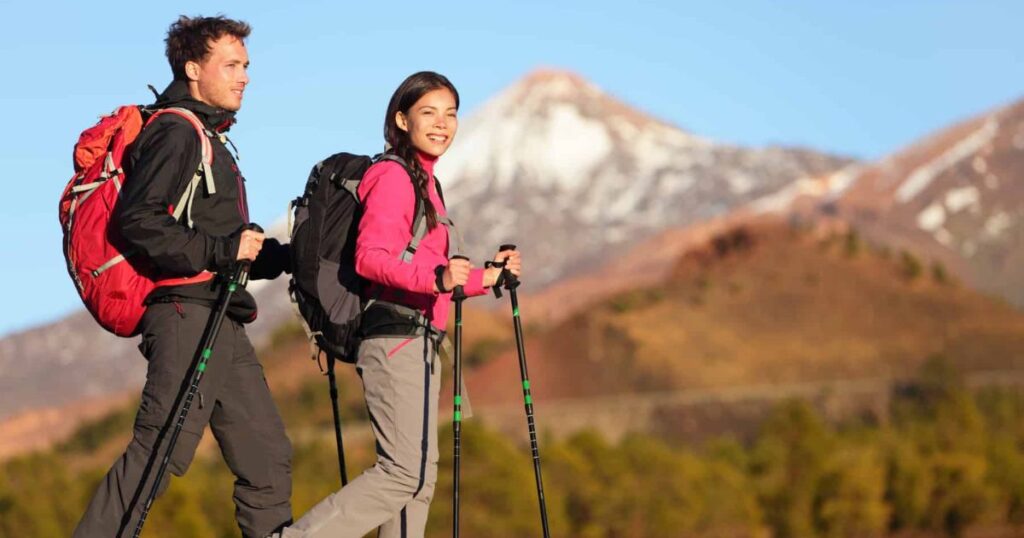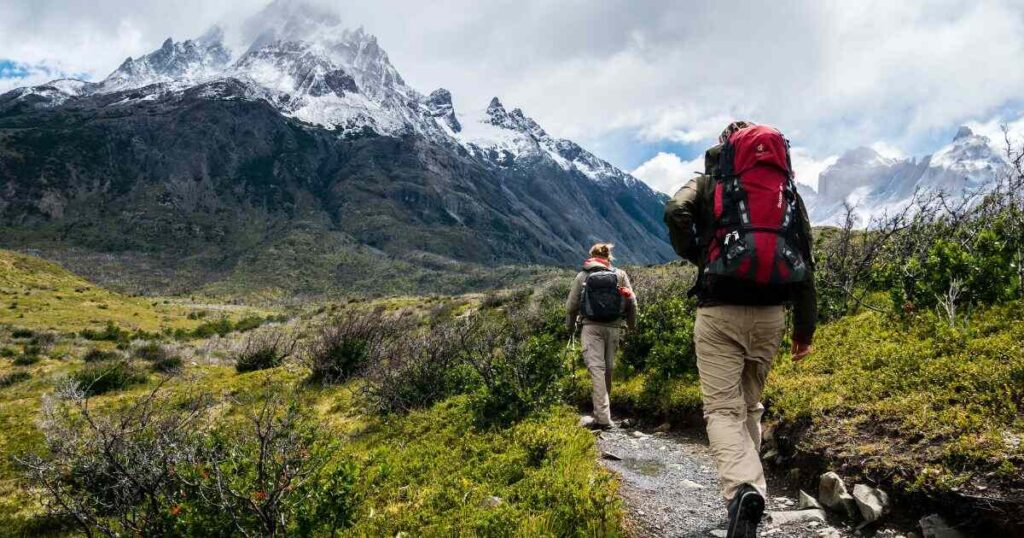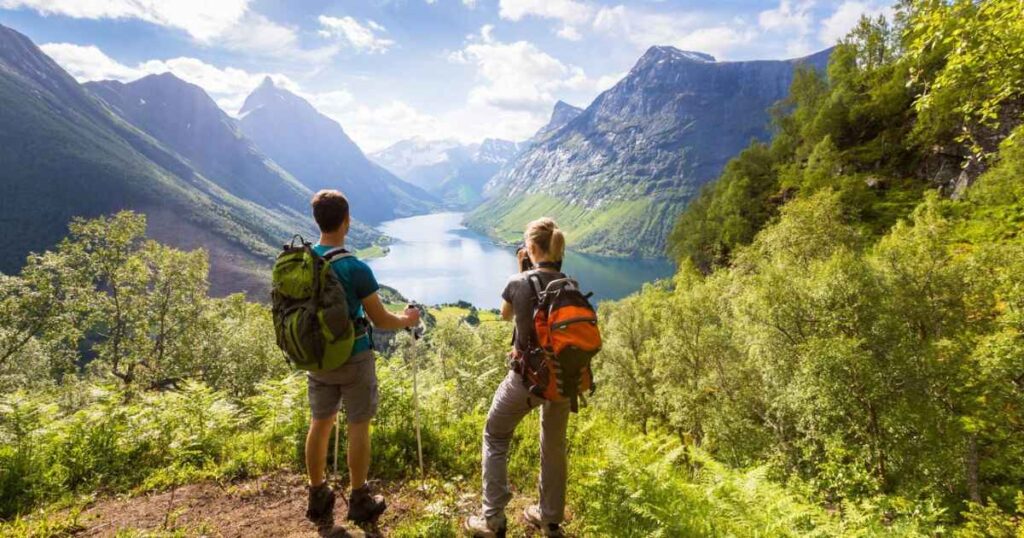Are you ready to lace up your boots and hit the trails? Hiking for beginners might seem daunting, but it’s an adventure that’s well within your reach. Picture yourself standing atop a mountain, breathing in crisp air, and soaking in views that’ll make your heart skip a beat. That’s hiking in a nutshell! Whether you’re looking to boost your fitness, clear your mind, or simply escape the daily grind, hiking offers a world of benefits. In this guide, we’ll walk you through everything you need to know to start your hiking journey. So, grab a snack, settle in, and let’s explore the wonderful world of hiking for beginners.
Why Start Hiking? The Perks of Hitting the Trails
Hiking isn’t just a walk in the park—it’s a full-body workout with a side of mental clarity and a hefty dose of vitamin Nature. Let’s break down why you should consider making hiking your new favorite hobby:
Physical Health Benefits
Hiking packs a punch when it comes to physical fitness. It’s a low-impact cardio workout that strengthens your legs, core, and even your arms (thanks, trekking poles!). But the benefits don’t stop there:
- Improved cardiovascular health: Regular hiking can lower your risk of heart disease and high blood pressure.
- Better balance and coordination: Navigating uneven terrain naturally improves your proprioception.
- Increased bone density: The weight-bearing nature of hiking helps combat osteoporosis.
- Enhanced endurance: Over time, you’ll find yourself tackling longer trails with ease.
Mental Health Boost
In our hyper-connected world, hiking offers a much-needed digital detox and mental reset. Here’s how it can benefit your noggin:
- Reduces stress and anxiety
- Improves mood and self-esteem
- Enhances creativity and problem-solving skills
- Promotes better sleep quality
“In every walk with nature, one receives far more than he seeks.” – John Muir
Connection with Nature
Hiking for beginners is like opening a door to a whole new world. It’s a chance to:
- Witness breathtaking landscapes firsthand
- Observe wildlife in their natural habitats
- Develop a deeper appreciation for the environment
- Find peace and perspective in the great outdoors
Budget-Friendly Adventure
Unlike some hobbies that require hefty investments, hiking can be surprisingly affordable. Most trails are free to access, and basic gear won’t break the bank. It’s a low-cost, high-reward activity that’s accessible to almost everyone.
Essential Gear for Novice Hikers

Before you hit the trails, you’ll need to gear up. Don’t worry—you don’t need to buy out the entire outdoor store. Here’s a breakdown of the essentials for hiking for beginners:
Footwear: Your Ticket to Happy Feet
Your feet are your most important hiking tools, so treat them right. Invest in a good pair of hiking boots or trail runners. Look for:
- Proper fit (with room for toes to wiggle)
- Ankle support (especially for beginners)
- Water-resistant materials
- Good traction for various terrains
Read This Post: The Best Hiking Shoes of 2024
Clothing: Dress for Success (and Weather)
The key to hiking comfort is layering. Here’s a basic clothing list:
- Base layer: Moisture-wicking shirt and underwear
- Insulating layer: Fleece or wool sweater
- Outer layer: Waterproof and breathable jacket
- Hiking pants or shorts
- Thick, moisture-wicking socks
- Hat for sun protection
Remember, cotton is rotten in the outdoors—it holds moisture and can lead to chafing and hypothermia. Stick to synthetic or wool materials.
Backpack: Your Portable Home Away from Home
For day hikes, a 20-30 liter backpack should suffice. Look for:
- Comfortable shoulder straps and hip belt
- Multiple compartments for organization
- Hydration system compatibility
Navigation Tools: Don’t Get Lost in the Sauce (or Woods)
Even in the age of smartphones, traditional navigation skills are crucial. Pack:
- Physical map of the area
- Compass (and know how to use it)
- GPS device or smartphone with offline maps
First Aid Kit: Better Safe Than Sorry
A basic first aid kit should include:
| Item | Use |
| Bandages | For cuts and blisters |
| Antiseptic wipes | To clean wounds |
| Pain relievers | For headaches or muscle pain |
| Antihistamines | For allergic reactions |
| Tweezers | To remove splinters or ticks |
| Emergency blanket | For unexpected weather |
Planning Your First Hike: A Beginner’s Roadmap
Now that you’re geared up, it’s time to plan your inaugural hike. Hiking for beginners is all about starting small and working your way up. Here’s how to set yourself up for success:
Choosing the Right Trail
For your first few hikes, look for trails that are:
- Short (2-5 miles)
- Well-marked and maintained
- Close to home
- Popular (safety in numbers)
Research local trails using websites like AllTrails or by visiting your local park’s website.
Understanding Trail Difficulty Ratings
Trail ratings can vary, but generally follow this pattern:
- Easy: Relatively flat, well-maintained trails suitable for all skill levels
- Moderate: Some elevation gain, potentially uneven terrain, suitable for those with some fitness
- Difficult: Significant elevation gain, challenging terrain, for experienced hikers
As a beginner, stick to easy or moderate trails until you build your confidence and fitness.
Checking Weather Forecasts
Weather can make or break a hike. Always check the forecast before heading out, and be prepared for conditions to change, especially in mountainous areas.
Telling Someone Your Plans
Safety first! Always let a friend or family member know:
- Where you’re hiking
- When you’re starting
- When you expect to return
- Who you’re hiking with
Hiking Techniques for Newbies

You’re almost ready to hit the trail! Here are some key techniques to keep in mind for hiking for beginners:
Pacing Yourself: The Tortoise Wins This Race
Hiking isn’t a race. Find a comfortable pace where you can still carry on a conversation. Take breaks as needed, especially when tackling uphill sections.
Staying Hydrated: Drink Before You’re Thirsty
Dehydration can sneak up on you. Aim to drink about half a liter of water per hour of moderate activity in moderate temperatures. Increase this if it’s hot or you’re working hard.
Leave No Trace Principles: Be a Good Nature Guest
Follow these seven principles to minimize your impact:
- Plan ahead and prepare
- Travel and camp on durable surfaces
- Dispose of waste properly
- Leave what you find
- Minimize campfire impacts
- Respect wildlife
- Be considerate of other visitors
Wildlife Encounters: Respect the Locals
Observing wildlife can be a highlight of your hike, but remember:
- Keep your distance
- Never feed wild animals
- Make noise to avoid surprising animals
- Know what to do if you encounter large predators (like bears)
Safety First: Avoiding Rookie Mistakes
Even experienced hikers can make mistakes. Here are some common pitfalls for beginners to avoid:
- Overestimating your abilities: Start with easier trails and work your way up.
- Not bringing enough water or food: Pack more than you think you’ll need.
- Ignoring weather forecasts: Be prepared for changing conditions.
- Relying solely on technology: Batteries die, so always have a map and compass.
- Wearing new boots on a long hike: Break in your footwear before hitting the trails.
What to Do If You Get Lost
If you find yourself off-trail:
- Stay calm
- Stay put (if safe to do so)
- Signal for help (whistle, bright clothing, fire)
- Conserve food and water
Dealing with Unexpected Weather
Always pack an extra layer and rain gear, even on sunny days. If caught in a thunderstorm, avoid high ground and isolated trees.
Fueling Your Adventure: Trail Snacks and Meal Ideas
Proper nutrition is key to an enjoyable hike. Here are some trail-friendly food ideas:
- Energy-boosting snacks: Trail mix, energy bars, dried fruit
- Lunch ideas: Wraps, hard cheeses, jerky
- Hydration: Water, electrolyte drinks
Remember to pack out all your trash!
Taking Your Hiking Game to the Next Level

As you gain confidence in hiking for beginners, you might want to challenge yourself. Here are some ways to level up:
- Join a local hiking club
- Try different types of hikes (forest, coastal, desert)
- Gradually increase your hike distance and elevation gain
- Learn new skills like navigation or wilderness first aid
Conclusion
Hiking for beginners is more than just walking in nature—it’s a gateway to adventure, health, and personal growth. With the right preparation and mindset, you’re ready to embark on a journey that could last a lifetime. So lace up those boots, pack your backpack, and take that first step into the great outdoors. The trails are calling, and now you’re ready to answer!
Remember, every expert was once a beginner. Take it one step at a time, enjoy the journey, and before you know it, you’ll be sharing your own hiking wisdom with the next generation of trail enthusiasts. Happy hiking.